Cultivating Values Based Relationships
BFI’s Isabel Martin reflects on our recent Career Fair and her work to make food systems careers more accessible to Berkeley students.
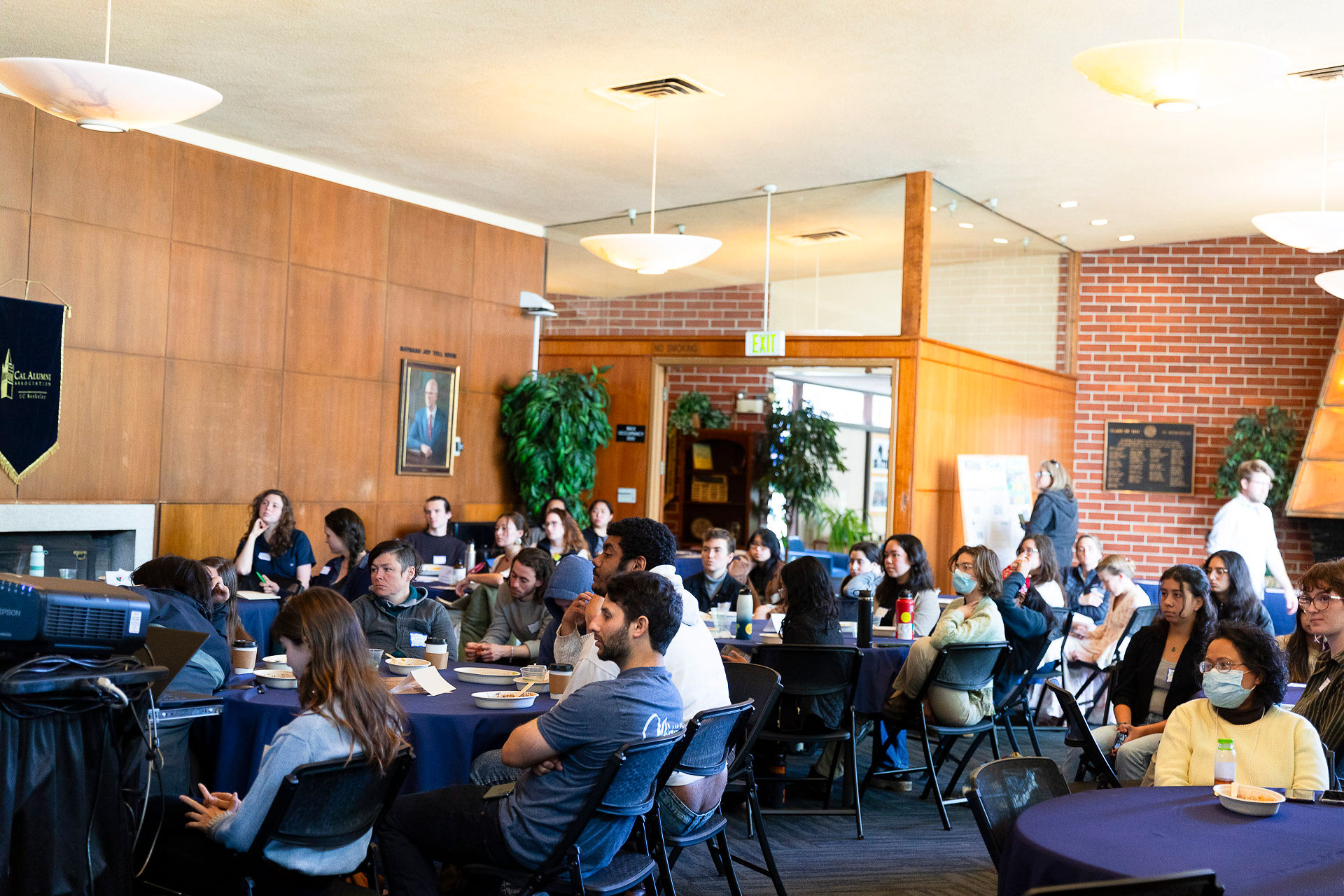
It’s been a fruitful year for BFI’s Food Systems Career Development program within our mission to support fair and healthy jobs. This year, as the Global Food Initiative Food Systems Careers Fellow at BFI, I’ve had the privilege of working with the BFI team to organize a series of events. These events have focused on deepening students’ understanding of values based supply chains — both fostering a community of conscious consumers and enabling students to explore this area as a potential career path. Our work has largely been supported by the USDA Transition to Organic Partnership Program, through which we have been tasked to offer workforce development opportunities in the areas of values based supply chains and technical assistance for farmers.
We started the year off with a site visit of Veritable Vegetable, an organic produce distributor, to show students what one link in the supply chain looks like. This trip really opened my eyes to the complex system of distribution and transportation in place to support access to fresh food. While our fall focus was showing students what careers in food systems look like, in the spring we shifted to how students can get these jobs. A crucial part of this is having resumes and cover letters that better reflect their professional narratives, so we held a resume review night in January where students could receive feedback from professionals in the food system. Students gained insights from Cal alumni now working for food systems organizations such as UC Agriculture and Natural Resources, California Certified Organic Farmers, Supply Change, and Mandela Partners.
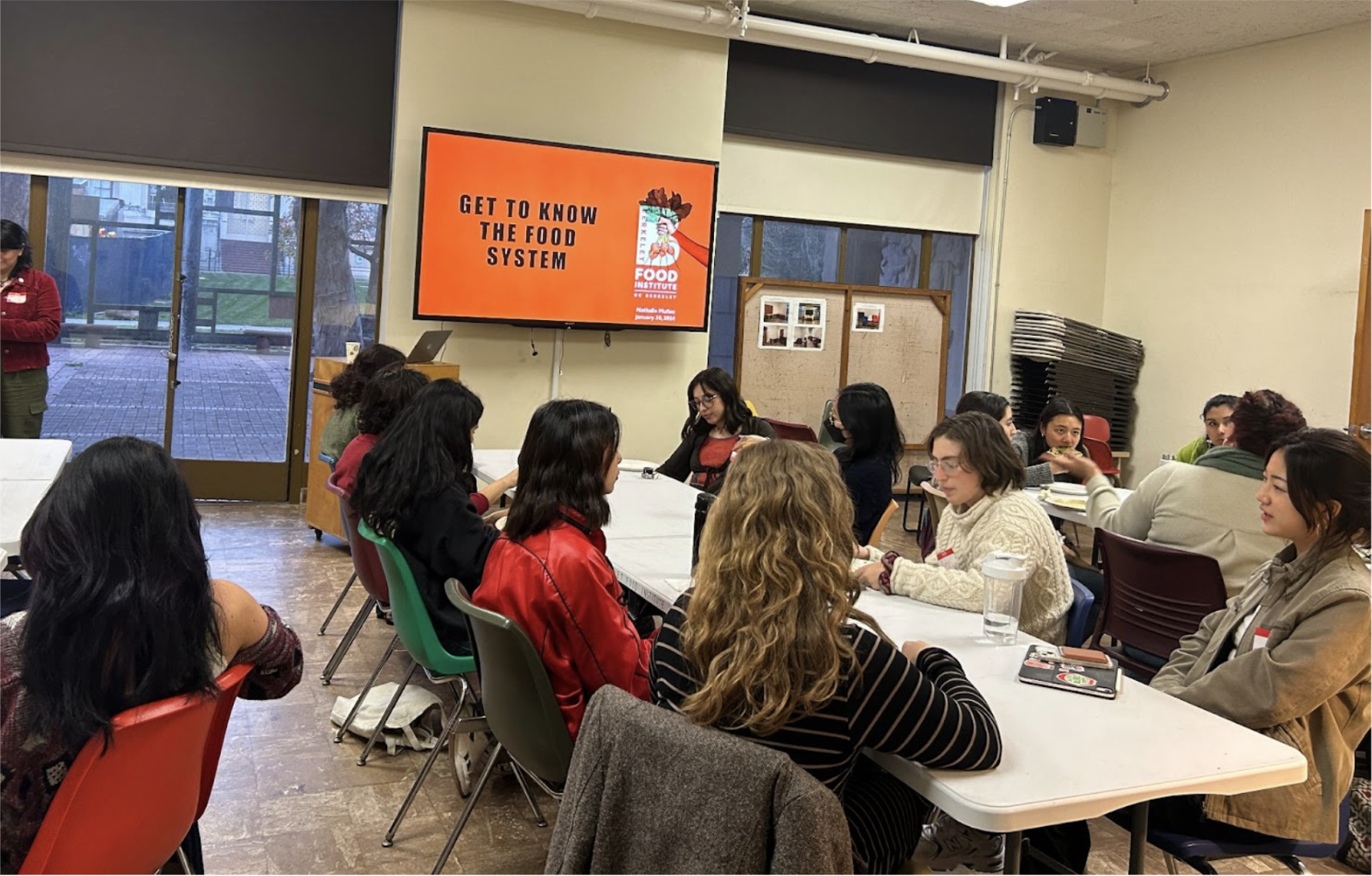
Students attending the resume review night on January 30, 2024.
The resume review and mock interview workshop prepared students for our main event of the semester: our 2024 Career Fair, called Cultivating Values-Based Relationships: Career Conversations with Food Systems Professionals, where we heard from professionals working across California in a series of panels, one on values based supply chains and another on technical assistance.
Taking lessons learned from last year’s career fair, we decided to hold more time for career fair attendees to freely network with the speakers before and after the panels. We also opened up our registration to welcome students and recent graduates from UC Davis, UC Santa Cruz, San Francisco City College and Merritt College, as well as other community members seeking to pivot their careers toward food systems. Cultivating a just and equitable food system requires people from diverse backgrounds working together to create innovative and community-driven solutions. This continues to inform our student outreach and engagement efforts to better prepare the coming generations of food systems advocates, scholars, scientists, and educators.
What Makes a Values Based Supply Chain
During the values based supply chains panel discussion, we heard from representatives of three organizations working to address issues in conventional supply chains. Historically, supply chains have harmed workers, people, and the planet by prioritizing profit over wellbeing. However these organizations are trying to build an economically and ecologically sustainable supply chain based on mutually beneficial relationships. FEED Sonoma and Foodshift represent just some of the Bay Area’s unique collection of food hubs working to redefine food distribution. On a broader scale, the National Farm to School Network is re-envisioning school nutrition to support local farmers. From farmer cooperatives, to food waste and schools, these organizations share a mission to localize food systems through innovation in supply chains.
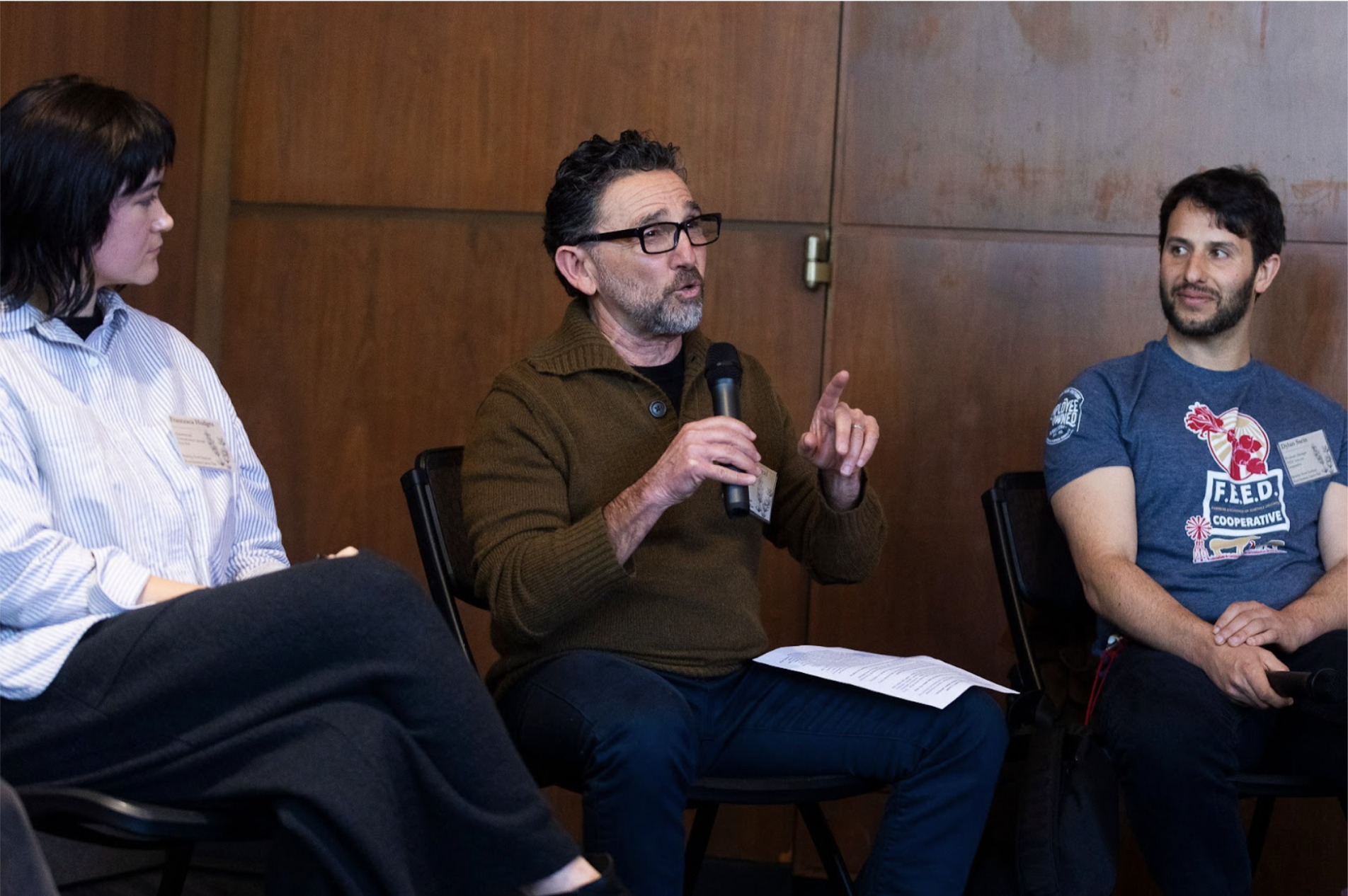
Values based supply chains panel (from the left) Francesca Hodges, Miguel Villareal, Dylan Stein. Photo by Estefany Gonzalez.
To understand how these organizations are innovating in the supply chain, we had to first dive deep into what makes the values based food supply chain different. I spent the year researching different models that organizations and institutions had developed, spoke with professors, and joined BFI on field trips to better understand the journey food takes before it reaches our plates and after. From this research I designed a graphic showing my understanding of how the steps in the supply chain are linked, the actors, and associated jobs. As consumers, our view of the supply chain usually starts at retail and ends at waste — only a fraction of the chain. By understanding all of the steps in the supply chain, we can understand how farmers markets, cooperatives and food hubs create alternatives to the conventional system. Most importantly the values based supply chain is circular not linear, emphasizing the importance of a circular economy.
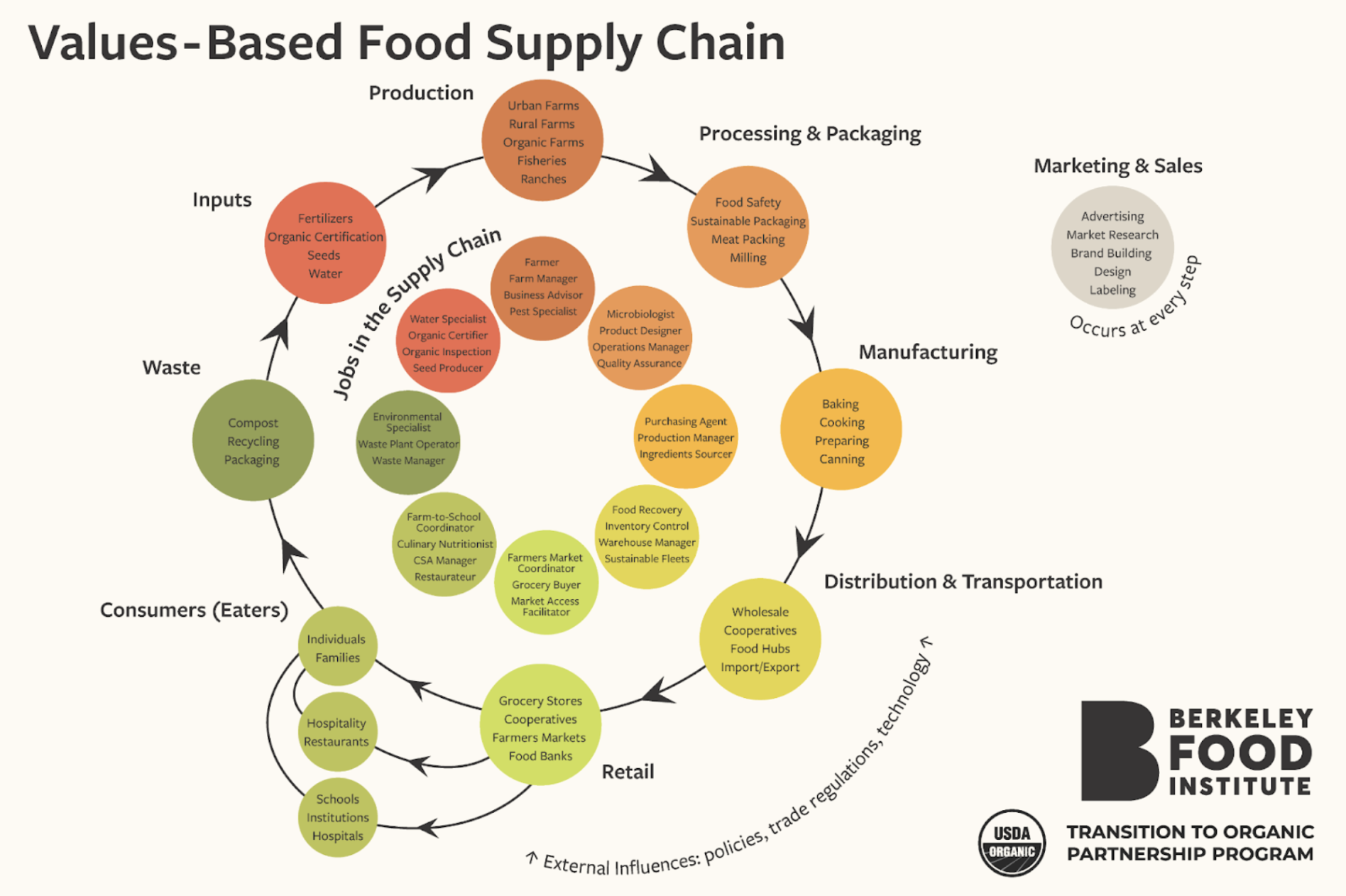
The inner circle of the graphic shows how people are working to influence the chain at every step. What’s better, these are all real jobs that have been submitted to our food systems opportunities newsletter. This graphic was printed as a poster and displayed at the career fair to provide crucial context and answer questions like “what jobs are out there?” It was so rewarding to see the graphic I had spent months researching and designing printed large for everyone to see. Overall, the goal of the Veritable Vegetable field trip, values based supply chain panel, and creating this graphic was to illustrate how anyone can have a role in influencing the supply chain.
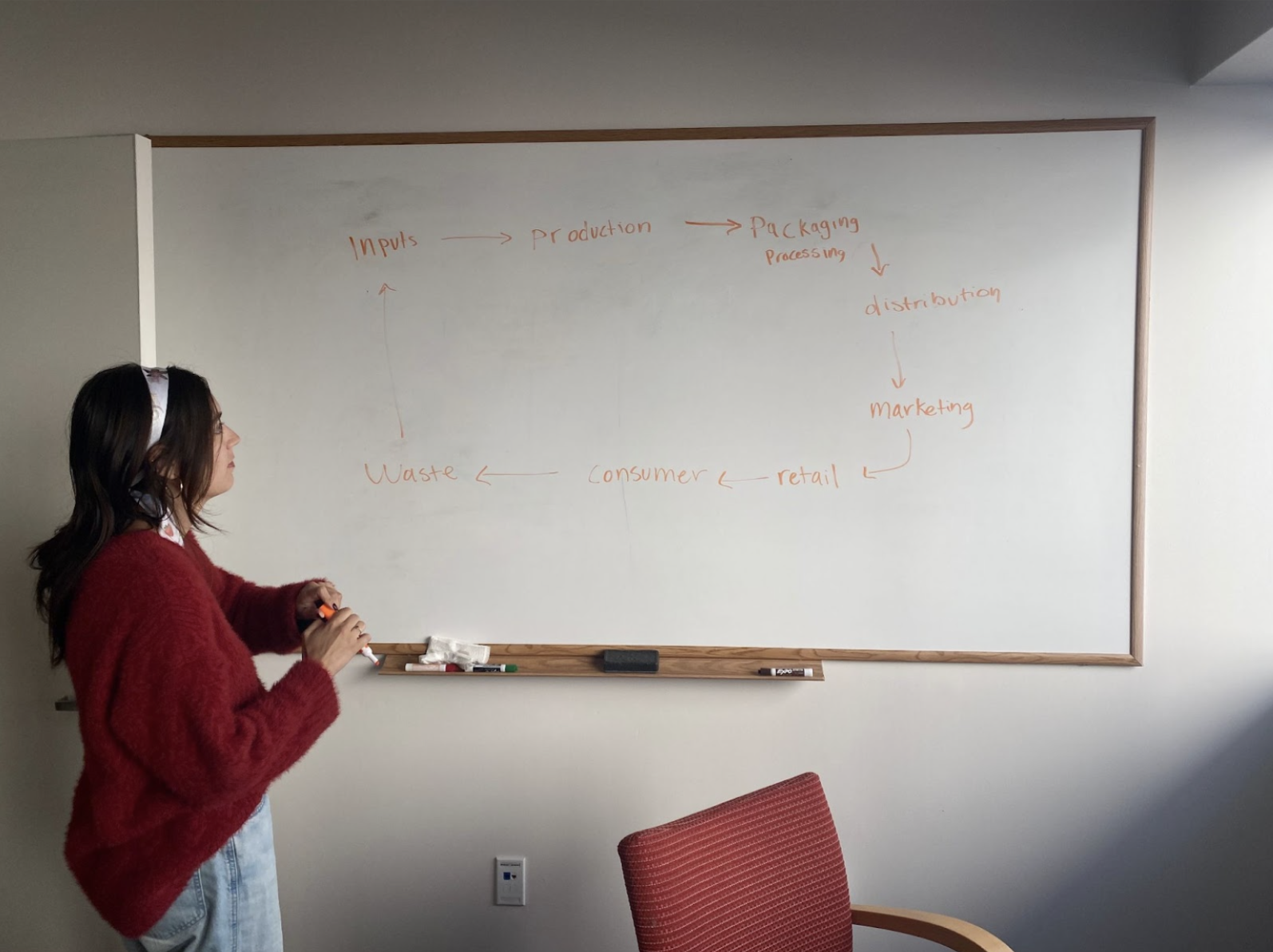
BFI fellow Isabel brainstorms the first iteration of the values based supply chain graphic.
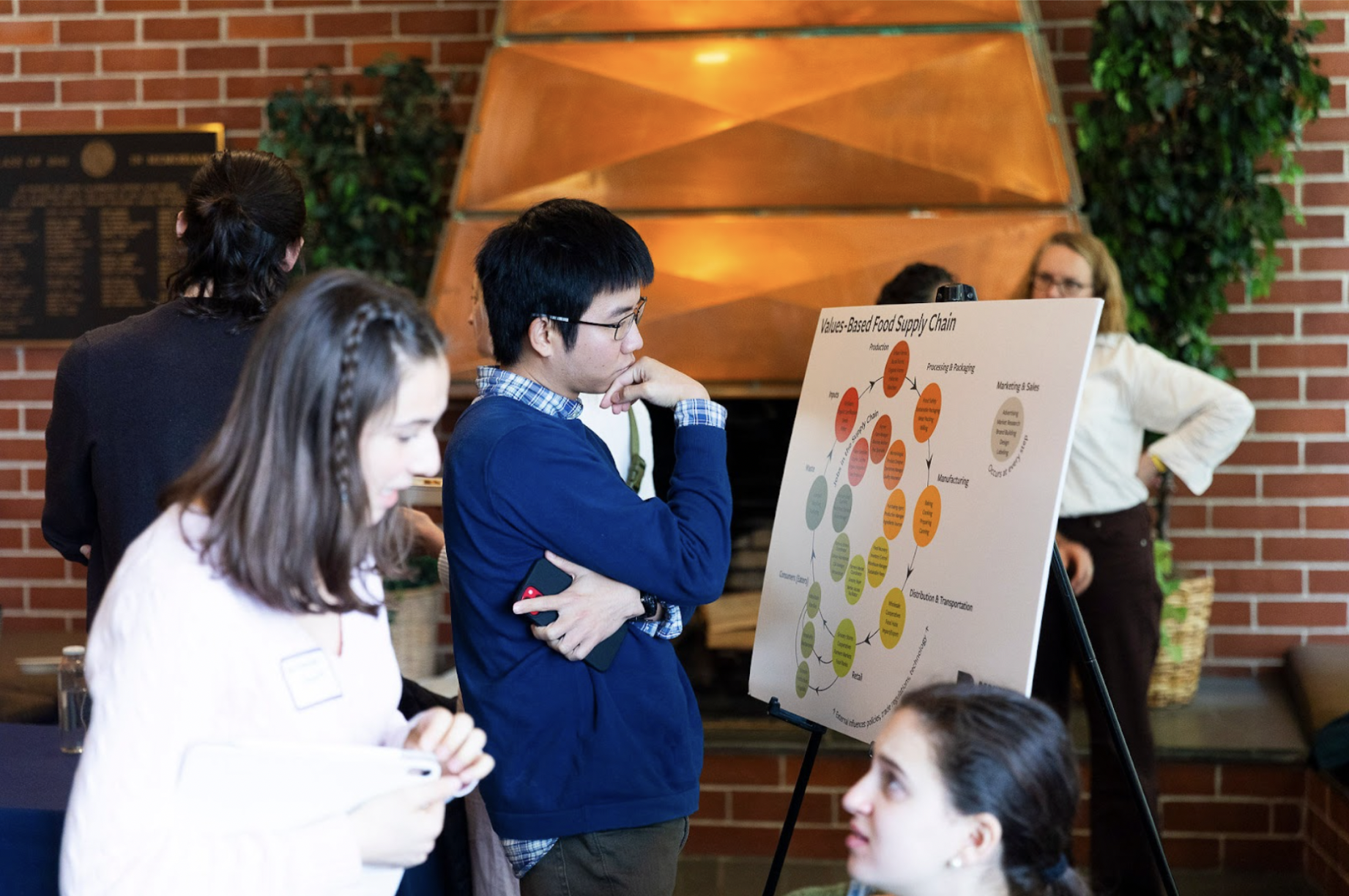
An attendee reads BFI’s values based supply chain poster. Photo by Estefany Gonzalez.
Supporting Farmers Through Technical Assistance
For the technical assistance panel we were joined by representatives from the USDA Natural Resource Conservation Service, the California State Organic Program, Community Alliance with Family Farmers, and California FarmLink. Each of these organizations focus on supporting small-scale and beginning farmers through technical assistance. Panelists discussed how their positions support farmers through challenges like land and market access.
The role of organic certification was a common topic discussed throughout the career fair. This is often a challenging and costly process for smaller farmers, especially those that are defined by the US Department of Agriculture as “socially disadvantaged.” Both sectors play a role in helping farmers through the process of transitioning to organic practices. Technical assistance providers support farmers to overcome barriers like insecure land tenure, costly certification, and a lack of support systems when accessing state programs. Similarly, food hubs assist farmers in finding a market that prioritizes the value added through organic farming.
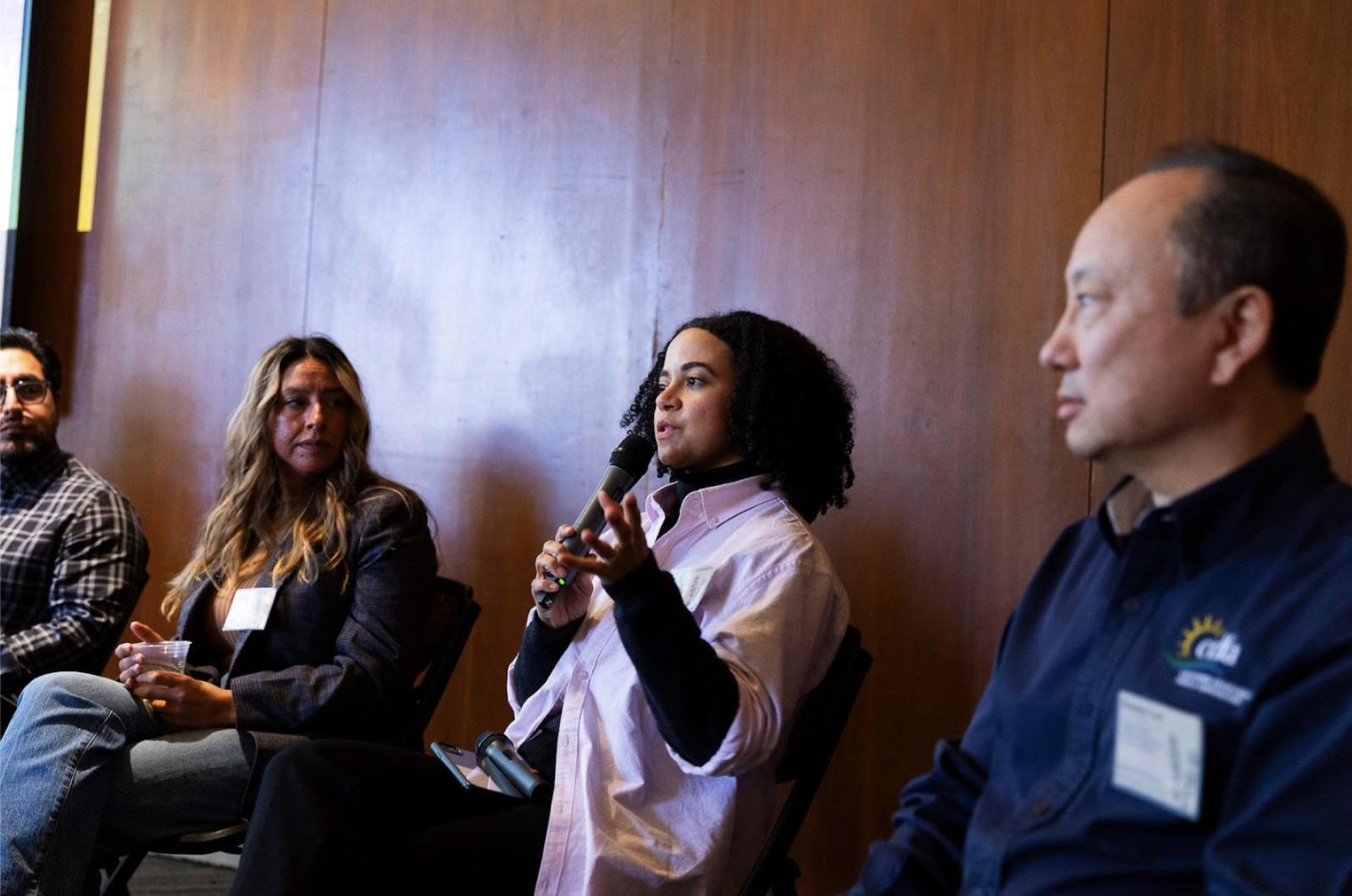
Technical assistance panel (from the left): Victor Henandez, Josefina Chavez, Laura Poline Gonzalez, and Danny Lee. Photo by Estefany Gonzalez.
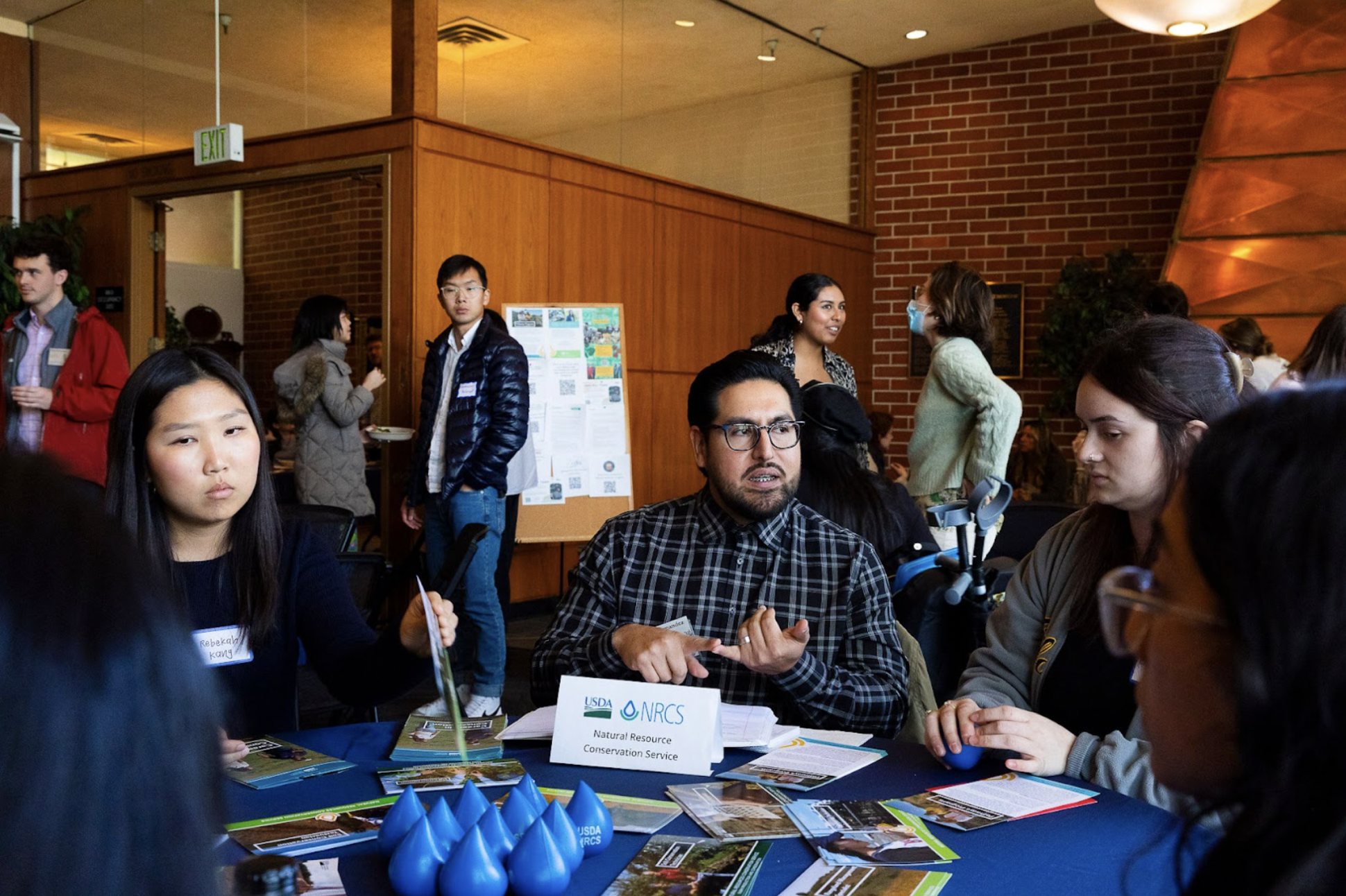
Victor Hernandez, Outreach Coordinator at the USDA’s Natural Resource Conservation Service discusses opportunities with students. Photo by Estefany Gonzalez.
Another major throughline during the panels was the importance of relationship building between farmers and partners. Jobs in technical assistance require working on the ground alongside practitioners and farmers. Communication skills, an open mind, and humility are just as if not more important than technical skills. One attendee shared in our post-event survey, “It was great to hear about the challenges we could face when working in the field with farmers.”
Our panel was also intergenerational from recent graduates to senior executives with 20-plus years of experience. Developing a career in food systems isn’t always linear. Overall, the event reminded students that there is more than one way to have a career in food systems. These careers require a variety of skill sets, backgrounds, and perspectives – meaning there is a place for everyone.
Next Steps in our Careers Program
While we enjoy offering these kinds of events, students also value mentorship opportunities. That is why we are partnering with the College of Natural Resources and the Students of Color Environmental Collective (SCEC) to support the mentorship program relaunching in 2025. This collaboration will allow students of color to learn directly from professionals about navigating careers in environmental and food systems sectors. To learn more about other student groups on campus doing amazing work, check out our student groups page.
In terms of academic opportunities BFI has been proud to support the development of a new course at the Haas School of Business called Improving Our Food System Through Values-Based Supply Chains. This course will be offered in Fall 2024 and co-facilitated by William Rosenzweig and Helene York — and will count toward the Food Systems Minor. Beyond UC Berkeley, Bay Area residents can also further their education through Merritt College’s Urban Agroecology Certificate.
Thank you to our Career Fair co-sponsors including the USDA Transition to Organic Partnership Program, Berkeley College of Natural Resources, Cal Veterans Service Center, Center for Responsible Business, RE-Entry Student program, and Student Environmental Resource Center.